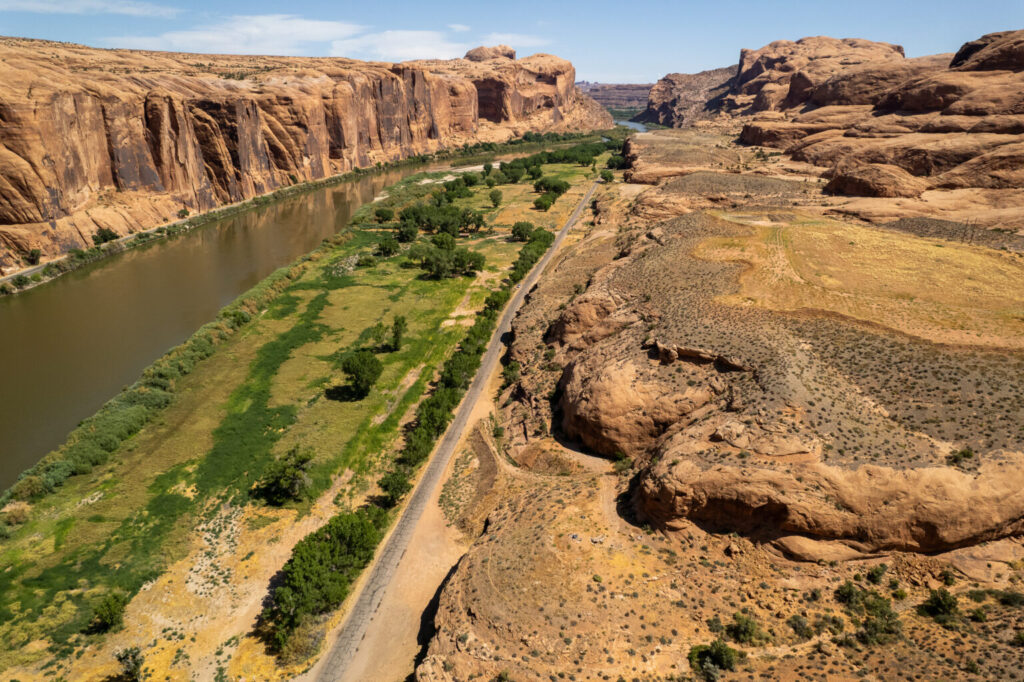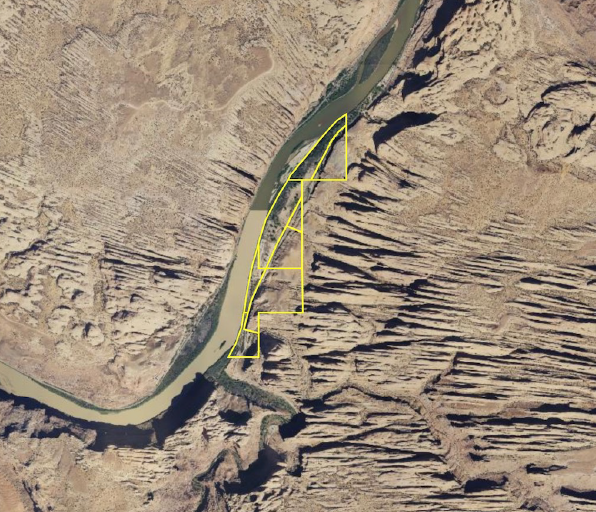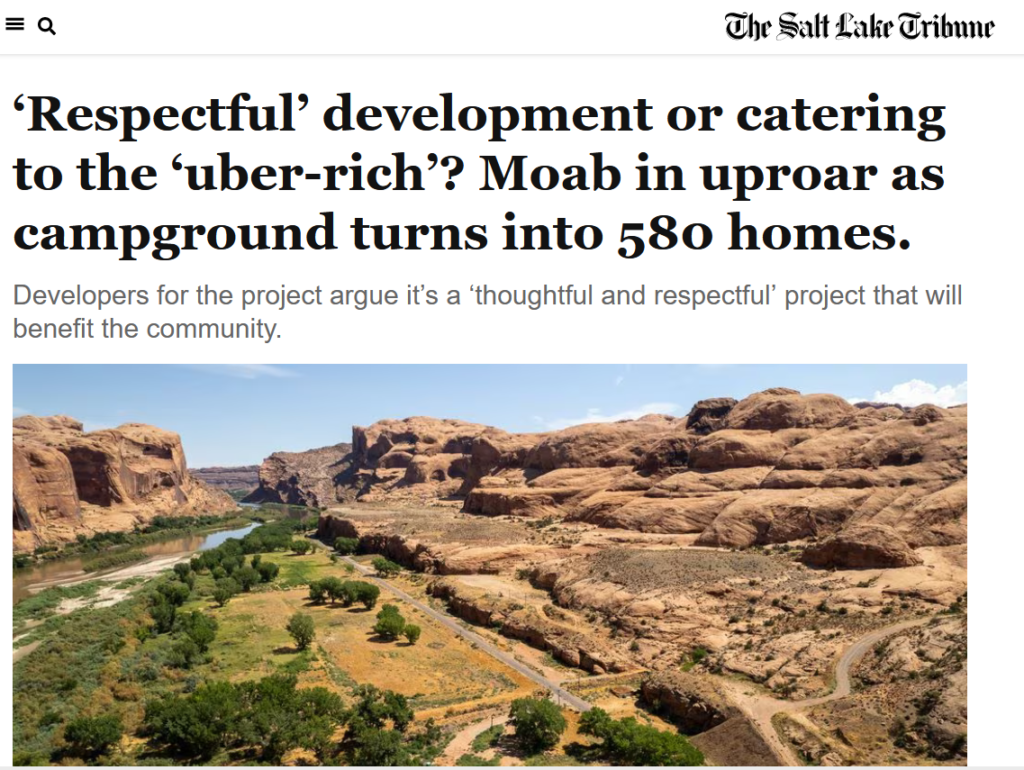We work to advance conservation issues that the National Sierra Club and the Colorado Sierra Club advocate, as well as our own regional issues. Here are some current ones, followed by more information and links for them below:
1. April 2024 we have info on the Kane Creek Development near Moab, Utah.
2. Voluntary Grazing Permit Retirement Act - HR6314, need to write your congresspeople!
1. Stop the Kane Creek Development!
We just launched our first Crowdfunding Campaign
Over 10,000 people have signed so far!
Help STOP the Kane Creek Development
Kane Creek Preservation and Development LLC is in the process of leveling and back-filling in180 acres of riparian area in the King’s Bottom floodplain. Located two miles from Moab along Kane Creek Road, this site was formerly a rustic campground and open space along the Colorado river.
The developers Craig Weston, Trent Arnold, and Tom Gottleib have taken advantage of a loop hole in Moab’s zoning and have used back door politicking to initiate plans to construct 500+ luxury homes in addition to commercial and industrial areas.
This area is a National Park worthy scenic landscape and important habitat for migrating birds and resident wildlife. It is a gateway to residents’ and visitors’ favorite trails, canyons, and cliffs as well as noteworthy archeological sites.


Current Status
Grading and filling of the floodplain by Salt Lake Excavation has begun following approval of the sewage treatment facility. We can STOP this. Please consider donating to help cover our legal fees.
2. Voluntary Grazing Permit Retirement Act - HR 6314
Bill to authorize the permanent retirement of grazing permits. We need to write our Congresspeople about this. Here are some points to help :
Positive Impacts
*Gives ranchers a chance to retire. Offspring not wanting to carry on.
*Would help native vegetation and sensitive ecosystems a chance to regenerate & heal.
*Would cut down on the spreading of invasive plant species.
*Would help streams recover from degradation and pollution.
*Quality recreation experiences.
*Protect sage grouse.
* A tool for ranchers & conservation.

